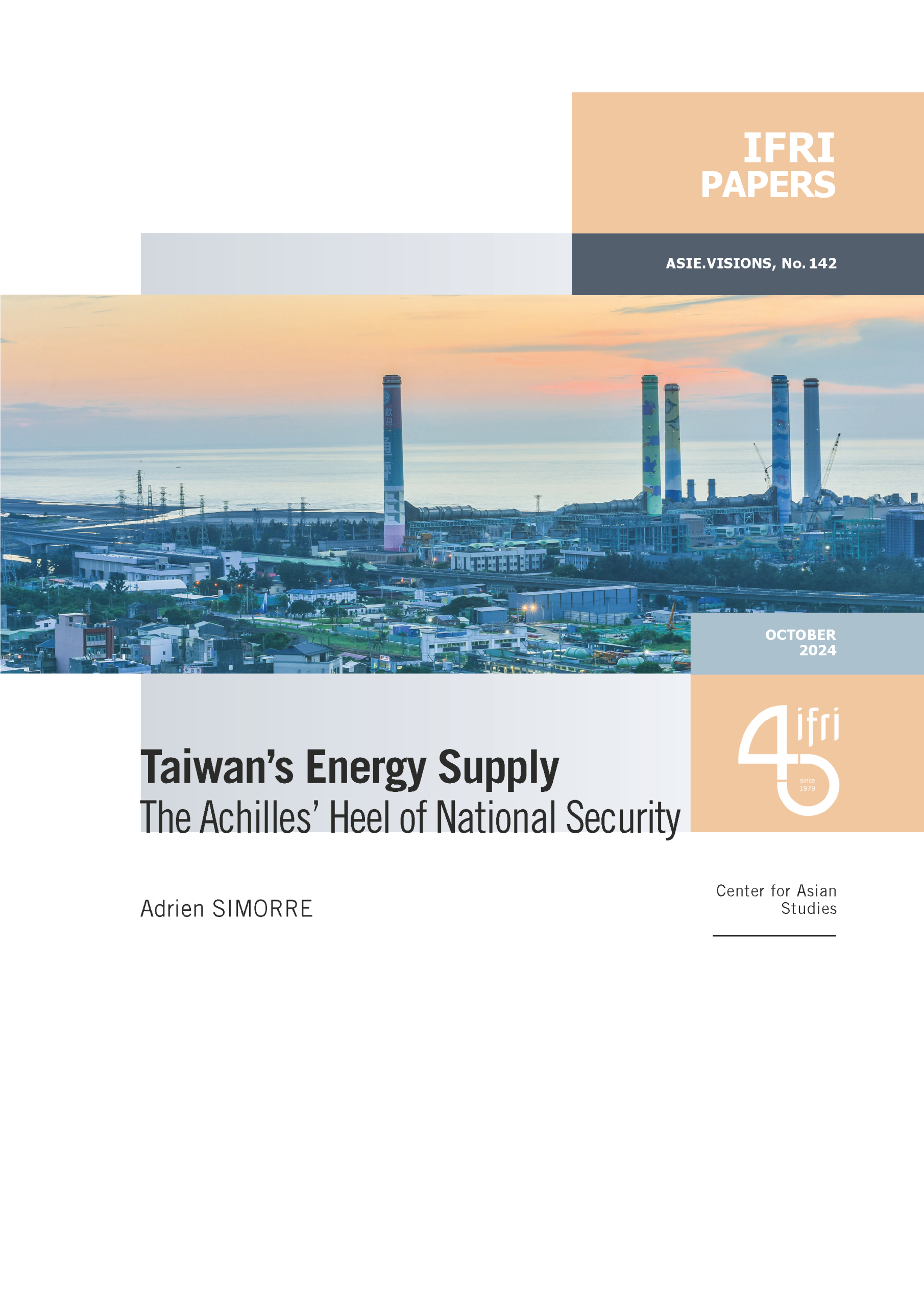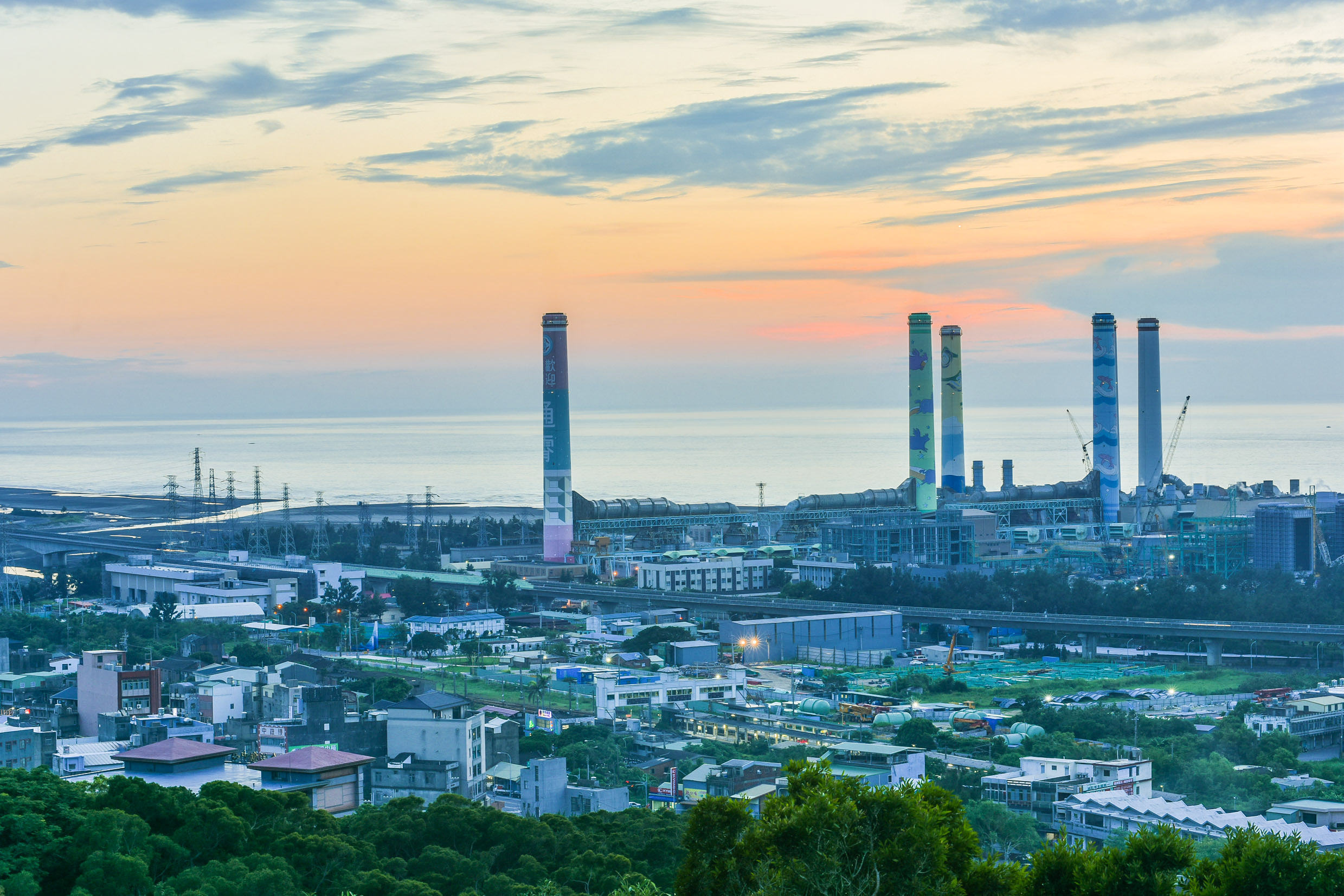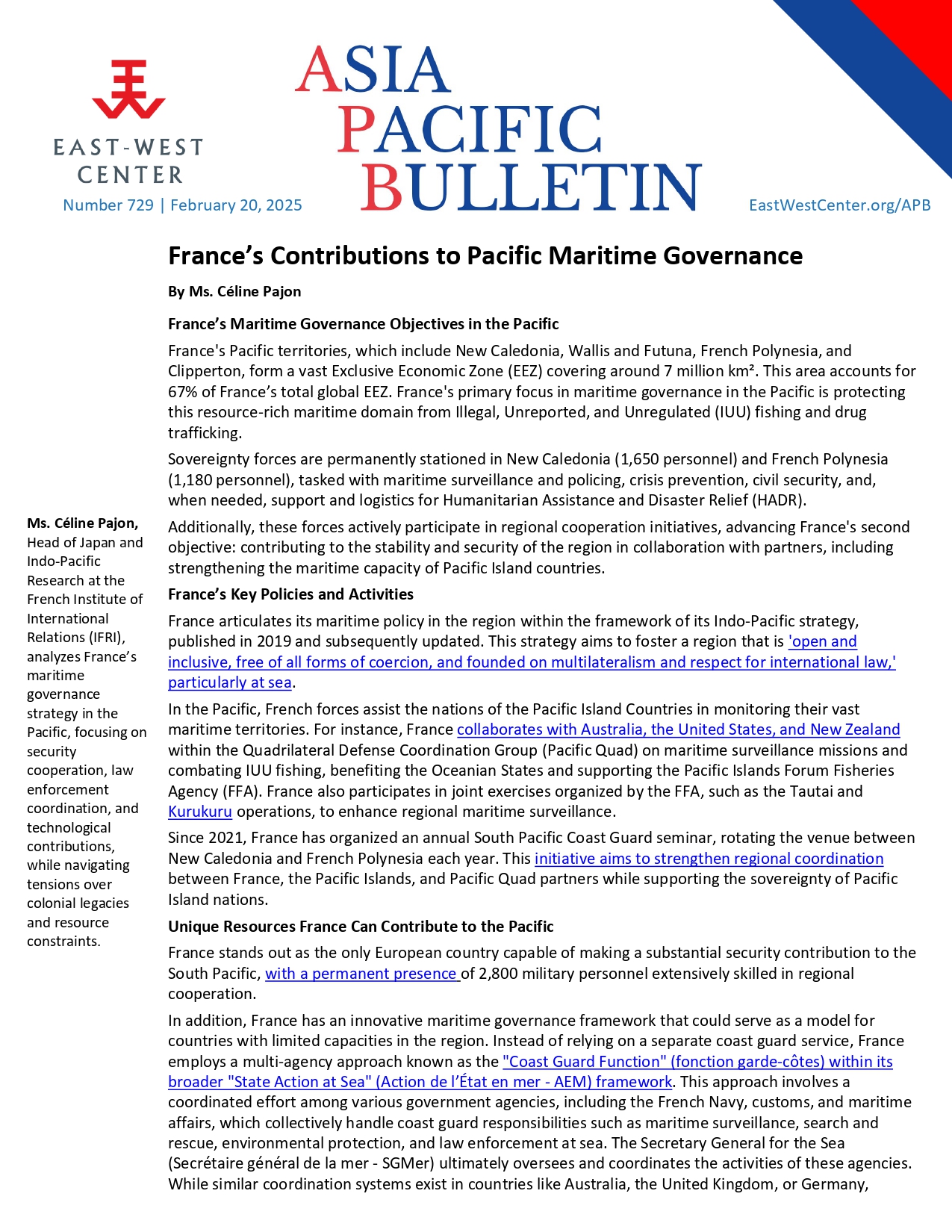Taiwan's Energy Supply: The Achilles Heel of National Security

Making Taiwan a “dead island” through “a blockade” and “disruption of energy supplies” leading to an “economic collapse.” This is how Colonel Zhang Chi of the People’s Liberation Army and professor at the National Defense University in Beijing described the objective of the Chinese military exercises in May 2024, following the inauguration of Taiwan’s new president, Lai Ching-te. Similar to the exercises that took place after Nancy Pelosi’s visit to Taipei in August 2022, China designated exercise zones facing Taiwan’s main ports, effectively simulating a military embargo on Taiwan. These maneuvers illustrate Beijing’s growing pressure on the island, which it aims to conquer, and push Taiwan to question its resilience capacity.

Taiwan, an island the size of Belgium but with a population as large as Australia’s (23 million people), has an insular energy system, with an isolated electrical grid. This grid powers one of the world’s most densely populated areas and energy-intensive high-tech industries, concentrated to the west of a massive central mountain range that runs from north to south. Moreover, Taiwan includes several islands that must rely on their own energy supply, particularly Kinmen and Matsu, two islands located just a few kilometers off the Chinese coast.
To meet these energy needs, Taiwan’s energy mix relies primarily on fossil fuels (natural gas and coal). This dependence will persist after the complete phase-out of nuclear power in 2025 (a commitment made by the Democratic Progressive Party [DPP] when it came to power in 2016), despite the rapid development of renewable energies.
In the context of regional tensions, energy supply represents a true Achilles’ heel for Taiwan’s national security. With 96% of its energy imported, the island is highly vulnerable to an embargo or disruption of maritime traffic. Additionally, fuel storage capacity is limited, as evidenced by the legal reserve of only eight days for liquefied natural gas (LNG). The location of major above-ground gas and oil storage tanks in western Taiwan, along with key power plants and the distribution network, increases the exposure of the energy system in the event of a military attack such as a bombing.
Aware of the challenge, the Taiwanese government is working to strengthen its energy independence, for example by encouraging the development of renewable energies, diversifying fossil fuel suppliers, increasing fuel storage capacities, and enhancing the security of the power grid.
However, the government struggles to formulate an energy policy that explicitly aligns with national security needs. Energy policy is nonetheless inseparable from national security, especially as the confidence of the Taiwanese people in their defense capabilities remains mixed. The sector also suffers from a fragmentation of responsibilities between private actors, the government, and state-owned enterprises, leading to inadequate investment strategies. It must also contend with other imperatives, such as the goal of reducing greenhouse gas emissions and the need to produce cheap electricity for the industrial sector.
This study is based on open sources as well as numerous interviews with industry players, experts, and political representatives conducted between May and July 2024 in Taipei.

Available in:
Themes and regions
ISBN / ISSN
Share
Download the full analysis
This page contains only a summary of our work. If you would like to have access to all the information from our research on the subject, you can download the full version in PDF format.
Taiwan's Energy Supply: The Achilles Heel of National Security
Related centers and programs
Discover our other research centers and programsFind out more
Discover all our analysesJammu and Kashmir in the Aftermath of August 2019
The abrogation of Article 370, which granted special status to the state of Jammu and Kashmir (J&K), has been on the agenda of the Bharatiya Janata Party (BJP) for many decades.

France’s Contributions to Pacific Maritime Governance
France stands out as the only European country capable of making a substantial security contribution to the South Pacific, with a permanent presence of 2,800 military personnel extensively skilled in regional cooperation.
Unlocking India’s Energy Transition: Addressing Grid Flexibility Challenges and Solutions
India is rapidly scaling up its renewable energy (RE) capacity, adding 15–20 GW annually, but the ambitious goal of 500 GW of non-fossil capacity by 2030 is at risk unless the pace accelerates.

The China-Russia Partnership and the Ukraine War: Aligned but not allied
China and Russia maintain a strategic partnership rooted in shared opposition to the U.S. and liberal democracies, but their relationship is shaped more by pragmatism than trust.









